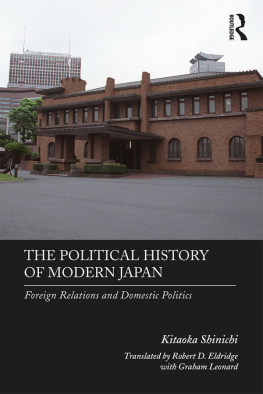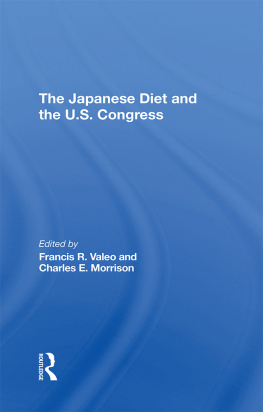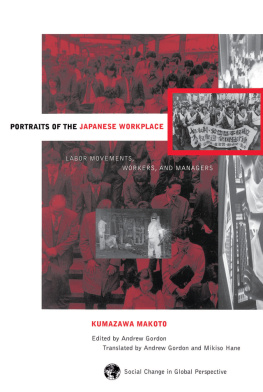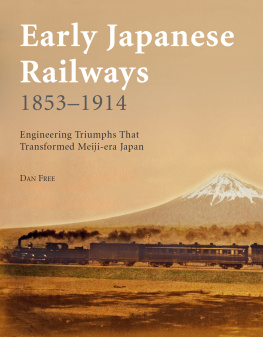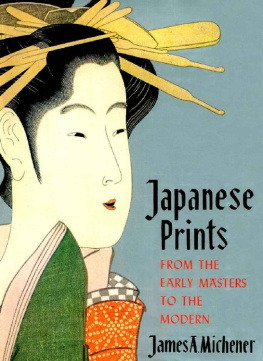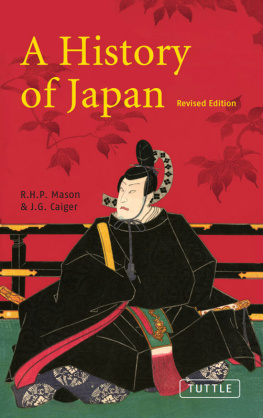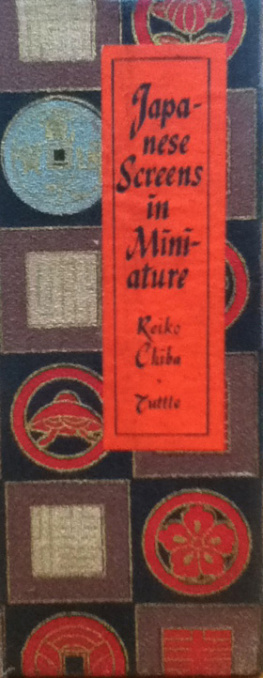Japan's early parliaments, 18901905The Nissan Institute/Routledge Japanese
Studies Series
Editorial Board
J.A.A. Stockwin, Nissan Professor of Modern Japanese Studies, University of Oxford and Director, Nissan Institute of Japanese Studies.
Teigo Yoshida, formerly Professor of the University of Tokyo, and now Professor, Obirin University, Tokyo
Frank Langdon, Professor, Institute of International Relations, University of Britsh Columbia, Canada
Alan Rix, Professor of Japanese, The University of Queensland Junji Banno, Professor, Institute of Social Science, University of Tokyo Leonard Schoppa, Assistant Professor, Woodrow Wilson Department of Government and Foreign Affairs, University of Virginia
Other titles in the series:
The Myth of Japanese Uniqueness,Peter Dale
The Emperor's Adviser: Saionji Kimmochi and Pre-war Japanese Politics,
Lesley Connors
Understanding Japanese Society,Joy Hendry
A History of Japanese Economic Thought,Tessa Morris-Suzuki
The Establishment of the Japanese Constitutional System,Junji Banno,
translated by J.A.A. Stockwin
Industrial Relations in Japan: the Peripheral Workforce,Norma Chalmers
Banking Policy in Japan: American Efforts at Reform During the Occupation,
William M. Tsutsui
Education Refom in Japan,Leonard Schoppa
How the Japanese Learn to Work,Ronald P. Dore and Mari Sako
Japanese Economic Development: Theory and Practice,Penelope Franks
Japan and Protection: The Growth of Protectionist Sentiment and the
Japanese Response,Syed Javed Maswood
Japan's Nuclear Development,Michael Donnelly
The Soil, by Nagatsuka Takashi: a Portrait of Rural Life in Meiji Japan,
translated and with an introduction by Ann Waswo
Biotechnology in Japan,Malcolm Brock
Britain's Educational Reform: a Comparison with Japan,Mike Howarth
Language and the Modern State: the Reform of Written Japanese,Nanette
Twine
Industrial Harmony in Modern Japan: the Invention of a Tradition,W. Dean
Kinzley
Japanese Science Fiction: a View of a Changing Society,Robert Matthew
The Japanese Numbers Game: the Use and Understanding of Numbers in
Modern Japan,Thomas Crump
Ideology and Practice in Modern Japan,Robert Goodman and Kirsten Refsing
Technology and Industrial Development in Pre-War Japan, Yukiko Fukasaku
Militarization in Contemporary Japan,Glenn D. Hook
Emperor Hirohito and Showa Japan,Stephen S. Large
First published 1995
by Routledge
2 Park Square, Mitlon Park, Abingdon, Oxon OX14 4RN
Simultaneously published in the USA and Canada
by Routledge
711 Third Avenue, New York, NY 10017
Transferred to Digital Printing 2005
1995 Andrew Fraser, R.H.P. Mason and Philip Mitchell
Typeset in Times by
Ponting-Green Publishing Services, Chesham, Bucks
All rights reserved. No part of this book may be reprinted or reproduced or utilized in any form or by any electronic, mechanical, or other means, now known or hereafter invented, including photocopying and recording, or in any information storage or retrieval system, without permission in writing from the publishers.
British Library Cataloguing in Publication Data
A catalogue record for this book is available from the
British Library.
Library of Congress Cataloging in Publication Data
Fraser, Andrew.
Japan's early parliaments, 1890-1905: structure, issues,
and trends/Andrew Fraser, R.H.P. Mason, Philip Mitchell.
p. cm. (Nissan Institute/Routledge Japanese
studies series)
Includes bibliographical references and index.
1. Japan. Teikoku Gikai-History. 2. Legislative bodies
Japan-History. 3. Japan-Politics and government
1868-1912. I. Mason, R. H. P. II. Mitchell, Philip, 1961. III. Title. IV. Series.
JQ1654.F73 1995
328.52'07-dc20 9412044
ISBN 0415030757
Preface and acknowledgements
The separate chapters of this book have a varied provenance. Andrew Fraser's have been freshly written; Philip Mitchell's was originally an Honours research dissertation; and Richard Mason's are revisions of already published papers. Details of original titles and places of publication, where relevant, can be found in the Bibliography. In a significant way, too, the present volume is an outgrowth of an earlier study of the 1890 election (Mason 1969). Despite this heterogeneity, it is hoped that there is sufficient commonality of approach, style, theme and purpose to give the book more than a semblance of unity; and the Introduction and Conclusions have, of course, been composed to that end. The question of datedness hardly arises; because all the chapters have been written from primary sources, and the precise topics covered have either not been treated elsewhere or not in anything like the same detail.
And so to acknowledgements: first, on the institutional side, all three authors are or have been connected with the Australian National University, and we owe it an additional measure of thanks for a generous publication subsidy; the Japan Foundation has helped finance two research visits to Japan in the case of Mason, and Mitchell received similar aid from the AustraliaJapan Foundation; and the Oriental Society of Australia kindly gave permission for reproduction of the material on poor relief. On the directly personal side, warm thanks must go first of all to Peter Sowden of Routledge for his unflagging support through years of delay and frustration for all concerned; also to Gordon Smith and James Whiting of Routledge for all their invaluable help with getting the book actually printed and published; to Junji Banno for his learned advice so willingly given; to Arthur (J. A. A.) Stockwin for his initial and continued interest and encouragement; to the efficient and ever kind and helpful staff of the Meiji Newspaper and Magazine Archive at Tokyo University; and, finally, to a group of keyboard staff whose support was often sadly discontinuous through no fault of their own but none the less vital. Among these last special mention must be made of Ms Katrina Anne Blight, Mrs Oanh Collins, Mrs Jean Harlen and Miss Panida Thamsongsana.





